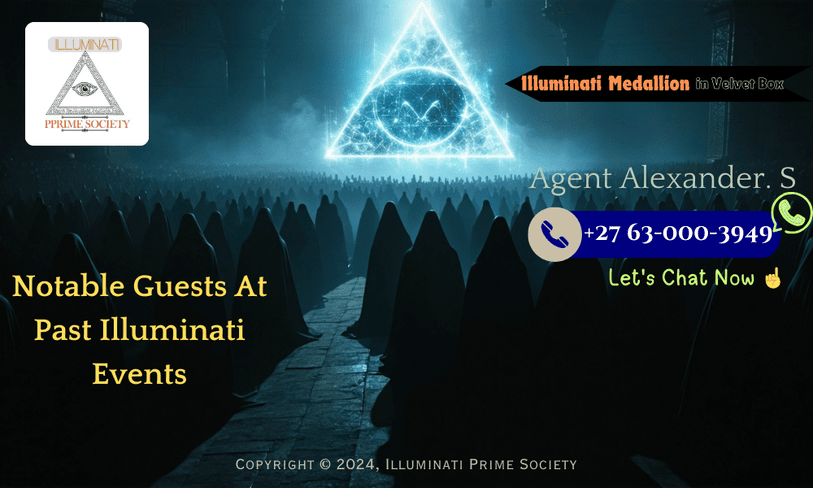Explore the shadowy world of Illuminati events and discover whether they are public spectacles or...
Notable Guests and Myths: Exploring Illuminati Event Legends

Discover the intriguing world of secret societies as we delve into some of the most notable guests who have reportedly attended past Illuminati events.
The Mystique of Illuminati Gatherings
Illuminati gatherings have always been shrouded in mystery, often portrayed as exclusive events where the world's most elite converge to discuss arcane knowledge and influence global affairs. These gatherings are reputed to be meticulously planned, with an emphasis on secrecy and confidentiality. Members reportedly engage in rituals and discussions that provide them with esoteric insights and strategic advantages in their respective fields.
The allure of these secret meetings lies not only in their exclusivity but also in the rumored participation of influential figures from various sectors. The notion that such eminent personalities might be part of a clandestine group adds to the mystique and intrigue surrounding the Illuminati.
Celebrities and Their Alleged Connections
Over the years, numerous celebrities have been rumored to have connections with the Illuminati. These allegations often stem from their sudden rise to fame, cryptic symbolism in their work, or outspoken advocacy for causes that align with the group's purported goals. Notable figures like Beyoncé, Jay-Z, and Madonna have been frequently mentioned, with conspiracy theorists pointing to their use of specific symbols and gestures as evidence of their affiliation.
While there is no concrete proof that these celebrities are indeed members, their influence and public personas make them prime subjects of speculation. This fascination with celebrity connections to the Illuminati highlights the public's ongoing intrigue with the idea of a hidden elite guiding the course of popular culture.
Political Figures in the Illuminati Spotlight
The political realm is another area where alleged Illuminati connections have been a subject of interest. Prominent political figures such as former U.S. Presidents and world leaders are often rumored to be part of or influenced by the Illuminati. These speculations are fueled by their powerful positions, the policies they implement, and their involvement in global decision-making bodies.
Conspiracy theories abound, suggesting that the Illuminati orchestrates political events to maintain control over world affairs. While these claims are largely unfounded, they persist in the public imagination, underscoring the enduring allure of secret societies in political contexts.
Influential Business Leaders and the Illuminati
The business world is not exempt from Illuminati speculation. Influential business leaders, particularly those who have amassed significant wealth and power, are often thought to be members of the Illuminati. Names like Bill Gates, Warren Buffet, and Jeff Bezos frequently come up in such discussions. Their unprecedented success and philanthropic efforts are sometimes viewed through the lens of Illuminati influence.
These conjectures stem from the belief that the Illuminati seeks to control global economies and markets. While there is no verifiable evidence to support these claims, the association between immense financial power and secretive societies continues to captivate the public's imagination.
Debunking Myths: Separating Fact from Fiction
While the idea of an all-powerful Illuminati pulling the strings behind the scenes is captivating, it is essential to approach such claims with a healthy dose of skepticism. Much of what is believed about the Illuminati stems from exaggerated stories, fictional accounts, and misinterpretations of symbols and actions.
The real Illuminati, founded in the late 18th century, was a short-lived organization that sought to promote Enlightenment ideals and secularism. Modern-day references to the Illuminati are often more myth than reality. By examining these stories critically, we can better understand the allure of secret societies while acknowledging the lack of concrete evidence supporting many of these claims.
.png?width=100&height=100&name=Illuminati%20Prime%20Society%20Logo%20(1).png)
.png?height=200&name=A%20luxurious%20candlelit%20hall%20set%20for%20an%20elite%20Illuminati%20Prime%20Society%20gathering%20in%20Vienna.%20(1).png)

